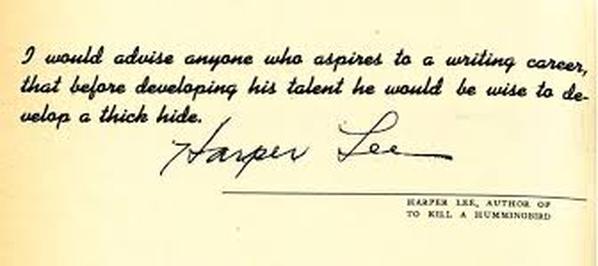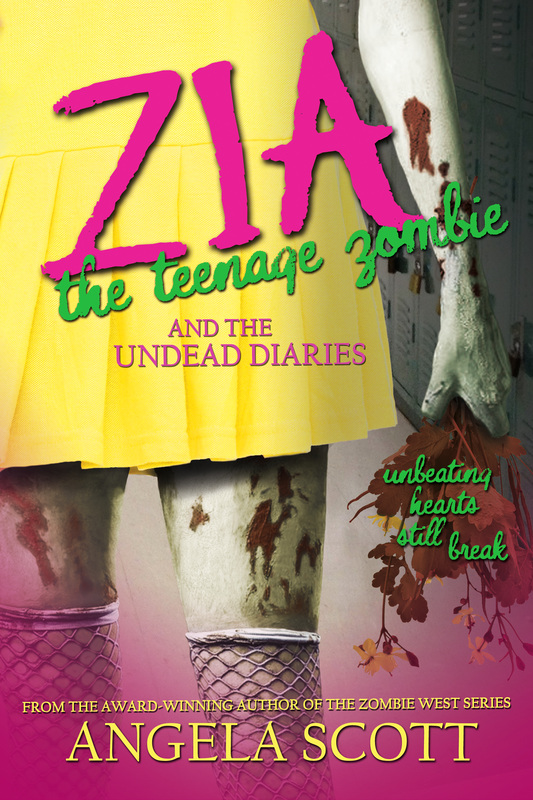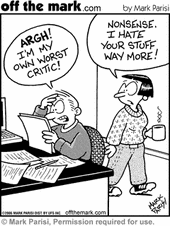|
Tuesday Writing Tip #5 (This will be a weekly feature. Check back next Tuesday for tip #6) Missed tip #4? You can find it HERE A lengthy discussion in a writer's group on Facebook led me to post my response to a new writer who said that she was too afraid to let anyone read her work. She worried about someone telling her that the best parts of her book weren't good enough. This was my response: "I've published six books with the seventh scheduled for this December. I still have anxiety every time I publish something new. I have likened it to standing naked in the middle of Times Square. There will either be whistles and yells of "You go girl!" or there will be hecklers and rotten tomatoes tossed at me. (Just so you know, there will always be tomatoes, no matter how sexy and fine of a bod you have. You just have to hope that the ratio of whistles are much higher, and that you have grown a thick skin so you can handle the tomatoes with dignity). The only way to develop a thick skin is to let people read and review our work. It is by sharing it with others that we can learn of our faults and improve upon them. Hiding away and being too afraid to share our writing with anyone will only hinder our efforts and will defeat the purpose we're trying to achieve as writers. Of course, criticism produces disappoint. It will sting. That is to be expected. Even the most seasoned of writers still feel disappointment when a passage doesn't receive the acclaims they had hoped for. But the difference between a pro and and amateur is the way they approach the criticism. Here are a few pointers taken from a blog post by J.E. Fishman on How to Take Criticism Like a Pro. You can read the entire post HERE. "You come to know a pro as much by her process as by the work she produces. Some people think pros just work harder than everyone else. While it’s true that they often do, there are any number of other ways in which a professional distinguishes herself. Acceptance of criticism is among the most powerful. If we want people to take us seriously as a writer, we must take criticism like a pro does: It would be awesome if we could produce a book or paint art or compose music with perfection from the get-go. That would be easy and ideal. But nothing is that easy, and if someone boasts that they can do it perfect the first time, then be skeptical. It's the process of learning and growing that makes being a writer so bloody fantastic (no, I'm not British). Here is another wonderful blog post as well: How to Develop a Thicker Skin. The advice is golden. If anything, please don't let the fear of rejection and disappointment keep you from doing what you love. Write and then share it. Start off by sharing your work with someone you trust, but who will also be fair and honest about it. Criticism is part of the process. We shouldn't try to avoid it, but instead look for ways to embrace it. It's all about the attitude. If you are willing to write for others, then be willing to listen, be willing to learn, and be willing to rewrite. I promise you, it will only make you a stronger writer if you do.
1 Comment
7/12/2014 03:50:47 pm
I think that I personally take criticism rather well. In fact, I love when people read and offer feedback on my work. Comments help my writing grow.
Reply
Leave a Reply. |
Now Available!
|


















